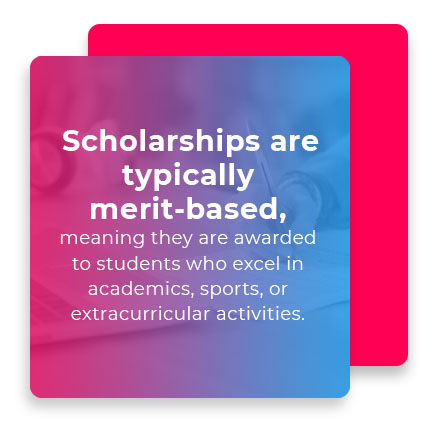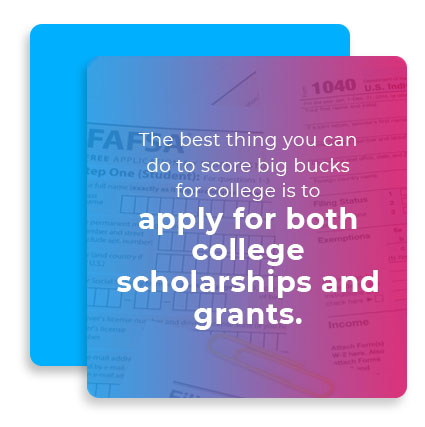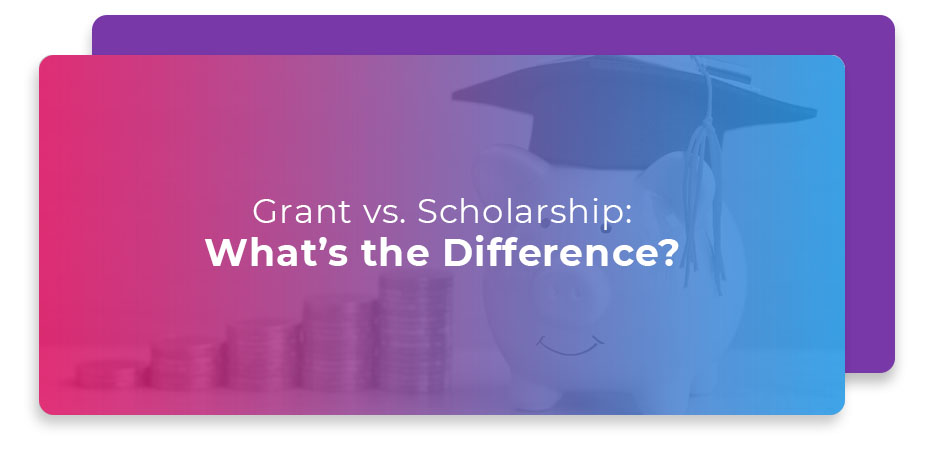- When applying for colleges, trade schools, and technical programs, you’ll want to try to score award funding to help you pay for tuition. Two of the most common types of financial aid are scholarships and grants, but which one should you pursue? It can be confusing to try to navigate their differences when they seem so similar. In this guide, we’re covering important definitions to help you figure out which kind of funding to go after given your unique goals.
How They’re Similar
The first thing you need to know about these funding options is this: Neither scholarships nor grants are student loans. In general, they’re financial aid options that you usually don’t have to pay back. In other words, they’re literally free money. Cha-ching! Typically, they are awarded to students based on a specific set of factors (more info on that below) and can be used to pay for tuition and various other school expenses, including room and board, meal plans, textbooks, and other supplies.
Do You Have to Repay Grants or Scholarships?
Generally, the answer is no. However, there are a few situations where you may have to repay scholarship or grant money, such as if you left the program for which the financial aid was given to you or if you changed your status or major. For example, some scholarships are only available to full-time students, so if you went from full-time to part-time halfway through the semester, you may have to repay some money. You may have to repay some grants if you also received scholarships which reduced your need for financial aid.
How They’re Different
While the two are quite similar, there are definitely a few things that distinguish college scholarships from academic grants. Knowing how they differ will help you get a better idea of which type you may qualify for so you get the most aid for your future. Take a look at the definitions below to see how they differ.

- You get good grades in high school or college.
- You scored high on your SAT or ACT.
- You are a high-contributing athlete.
- You are involved in a local ethnic club.
- You are involved in your church, temple, or synagogue.
- You are involved with a community organization, such as Kiwanis International or Knights of Columbus.
- You are involved in clubs at school or in the community.
- Grants — Grants are typically need-based, meaning they are awarded from the government to students who don’t have the financial means to pay tuition themselves. Grants are awarded to students in need based on their Free Application for Federal Student Aid (FAFSA) form. Some of the most common federal grants are:
- Federal Pell Grants for low-income undergraduate students.
- Federal Supplemental Educational Opportunity Grants (FSEOG) for low-income students.
- Teacher Education Assistance for College and Higher Education (TEACH) Grants for students who plan to become teachers in a high-need field in a low-income area.
- Iraq and Afghanistan Service Grants for students whose parent or guardian died in service in Iraq or Afghanistan.
Which One Should You Aim For?
Both!

Regardless of background, the majority of students fill out the FAFSA, and why not? By simply providing the federal government with important financial information, you can get free money for college. Yep, you don’t even have to supply any grades, test scores, or accolades. While you may not qualify for much, every little bit helps.
And regardless of your academic performance, you should always use Tallo to help you get college scholarships. Here’s why: contrary to popular belief, scholarships aren’t given out based solely on test scores, grades, or sports. Your writing skills, artistic skills, involvement in certain clubs, and even your ancestral background can translate to dollar signs, so apply, apply, apply!




